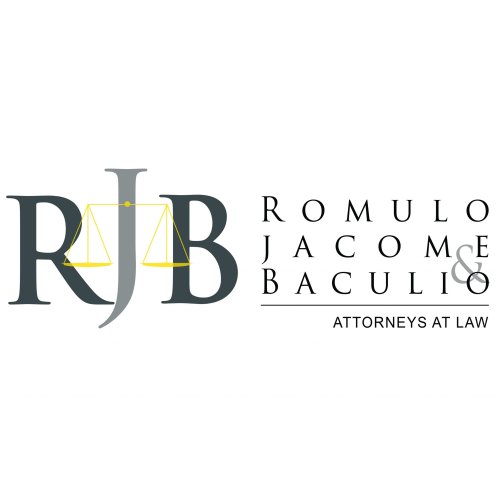Best Social Security Lawyers in Philippines
Share your needs with us, get contacted by law firms.
Free. Takes 2 min.
Or refine your search by selecting a city:
List of the best lawyers in Philippines
About Social Security Law in Philippines
The Social Security Law in the Philippines is a government initiative aimed at providing a social insurance program for workers in the private, professional, and informal sectors. This program is managed by the Social Security System (SSS) and offers benefits such as sickness, maternity, retirement, disability, and death. The goal is to provide financial assistance to its members and their beneficiaries during instances such as old age, loss of income, or unforeseen circumstances that cause incapacitation.
Why You May Need a Lawyer
There are several scenarios where individuals might require legal assistance with Social Security in the Philippines. These include instances where there is a dispute over claims, denial of benefits, or inaccuracies in contribution records. Legal advice can also be necessary for understanding complex regulations, appealing decisions by the SSS, and dealing with cases of fraud or misrepresentation. Additionally, individuals facing difficulties in navigating the application process may benefit from legal guidance to ensure compliance with all requirements.
Local Laws Overview
Key aspects of local laws relevant to Social Security in the Philippines include the requirement for contributions from both employers and employees, the computation of benefits based on contributions, and the mandatory registration for both regular and voluntary members. The Social Security Law mandates that all covered employees must make regular contributions to be eligible for various benefits. The law also stipulates penalties for non-compliance, ensuring the integrity and sustainability of the Social Security System.
Frequently Asked Questions
1. What is the SSS contribution rate in the Philippines?
The total contribution rate is based on an employee's monthly salary, shared between the employer and the employee, with the specific percentage subject to updates by the SSS.
2. Who is required to register with the SSS?
All employees in the private sector, self-employed individuals, and Overseas Filipino Workers (OFWs) are required to register with the SSS.
3. How do I apply for SSS benefits?
Applications can be made online through the SSS website or by visiting an SSS branch with the necessary documentation for the specific benefit being applied for.
4. What are the penalties for late contributions?
Employers face penalties, including fines and potential legal action, for failing to remit contributions on time, while employees may face delays in accessing benefits.
5. Can I receive multiple benefits from the SSS simultaneously?
Certain benefits can be received simultaneously, while others cannot, depending on the SSS policies and the type of benefits in question.
6. How is my retirement benefit calculated?
Retirement benefits are calculated based on the total contributions made, the duration of contributions, and the member’s average monthly salary credit.
7. What happens if there is a discrepancy in my contribution record?
If discrepancies appear, it is advisable to contact the SSS immediately to rectify the records to avoid issues in benefit claims.
8. Is there a statute of limitations on claiming SSS benefits?
Claims for SSS benefits generally do not prescribe, but it is advisable to apply for benefits as soon as one is eligible to avoid potential complications.
9. What is the process for appealing a denied SSS claim?
The member can file a formal appeal within the SSS, followed by possible further appeals at higher legal authorities or tribunals if needed.
10. How can self-employed individuals contribute to the SSS?
Self-employed individuals can register with the SSS and select a monthly contribution based on their declared income, ensuring they remit these contributions on time.
Additional Resources
Those seeking legal advice or more information on Social Security in the Philippines can contact or visit:
- The Social Security System (SSS) official website and branches
- Department of Labor and Employment (DOLE)
- Philippine Overseas Employment Administration (POEA) for OFWs
- Legal Aid Organizations and Legal Clinics offering pro bono services
- Local government offices with facilitation and assistance services
Next Steps
If you find yourself needing legal assistance regarding Social Security in the Philippines, consider the following steps:
- Gather all relevant documentation and records of your SSS contributions.
- Consult with a lawyer specialized in social security law to evaluate your situation.
- Utilize online resources or visit a local SSS branch for preliminary guidance.
- File any necessary appeals or legal documents promptly to ensure your rights are protected.
- Continuously follow up on your claims or inquiries to ensure progression and resolution.
Lawzana helps you find the best lawyers and law firms in Philippines through a curated and pre-screened list of qualified legal professionals. Our platform offers rankings and detailed profiles of attorneys and law firms, allowing you to compare based on practice areas, including Social Security, experience, and client feedback.
Each profile includes a description of the firm's areas of practice, client reviews, team members and partners, year of establishment, spoken languages, office locations, contact information, social media presence, and any published articles or resources. Most firms on our platform speak English and are experienced in both local and international legal matters.
Get a quote from top-rated law firms in Philippines — quickly, securely, and without unnecessary hassle.
Disclaimer:
The information provided on this page is for general informational purposes only and does not constitute legal advice. While we strive to ensure the accuracy and relevance of the content, legal information may change over time, and interpretations of the law can vary. You should always consult with a qualified legal professional for advice specific to your situation.
We disclaim all liability for actions taken or not taken based on the content of this page. If you believe any information is incorrect or outdated, please contact us, and we will review and update it where appropriate.
Browse social security law firms by city in Philippines
Refine your search by selecting a city.

















